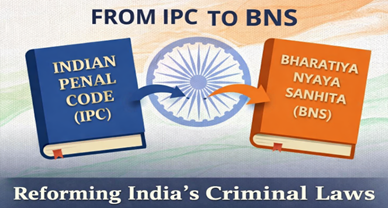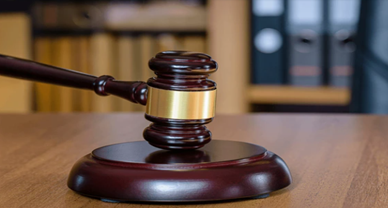Meta’s $8 Billion Reckoning: How India May Rewrite Global Boardroom Liability
Introduction
In Meta’s shadowy $8 billion suit, a quiet but epochal legal drama is playing out—not in Delaware, but halfway across the world in India. What began as a threat of corporate exile has materialized—transfigured into a legal stress test of how states handle director accountability. And while legislatures respond to shifting horizons, one question takes center stage: When corporate boards fail, who is holding the executive compass?
The Delaware Flashpoint
Since so many of Meta’s directors were already living in Delaware, the threat of relocation no longer seemed quite as remote—nay, theoretical. A mere matter of months needed to elapse before Senate Bill 21 (SB 21) became law. The bill restricted judicial discretion, gave directors broader shields against new theories of liability, and offered legislators an expressway to modify corporate laws. Even a state senator during the July 2025 debate had declared, “We’re the 51st boardroom you never elected.”
The law temporarily curbed corporate exodus. But trial is nigh. In May 2026, so-called “Meta Trial” will be the first significant courtroom showdown under SB 21. Plaintiffs allege Meta’s board of directors disregarded multiple warning signs about user data privacy—claims based on the seldom employed but influential Caremark doctrine.
As Delaware strained to prop up its fortress, New Delhi proceeded and wrote its own playbook of artillery—streamlining insider-trading guidelines and reasserting what it sees as an avowedly Indian style of director accountability. The mood was encapsulated by one blistering question: “Who watches the watchmen?”
Meta’s $8B Trial and the Indian Counterpunch
The $8 billion suit isn’t make-believe. It’s a product of the residual shock waves from the 2016 Cambridge Analytica data fiasco. The Federal Trade Commission took notice. So did the European Parliament. Even Netflix turned it into a cautionary movie in “The Great Hack.” Now plaintiffs allege that Meta’s board just did nothing, violating their Caremark duty of oversight of system risk.
Meta’s defense will be built on a rhetoric of revolution. Its boards, the company maintains, have decades of experience in turning to privacy-first features and transparency around data handling. But the magic illusion: Plaintiffs hired an Indian law firm specializing in obtaining blockbuster fines under India’s Companies Act—namely sections 134 and 147, which empower courts to impose penalties personally on directors for crimes of dishonesty or gross negligence.
Their own company has already moved in Delhi High Court to apply Indian fiduciary principles to the global debate. Their firm’s strategy will be to combine Meta’s duty-of-care defense with India’s new “public good” doctrine. If liberal rules of evidence in India produce persuadable documents, Delaware judges might well peer through that public-interest window too—and that could alter the trial outcome.
India’s Fiduciary Law: A Harder Caremark
India’s Companies Act of 2013 mandates directors to be in good faith and reasonable care. Indian courts have given meaning to those terms—most notably in enforcing sections 134 and 147. Directors are liable directly if the violation is deemed dishonest or in intent, and the law no longer acquits them on a charge of ignorance.

A turning point was in 2020 when the Supreme Court decided in SEBI v. Reliance Industries Ltd. In the court’s opinion, a failure to make disclosures about risks is as dangerous as a failure to act against risks. Inaction is no longer a hallowed activity by design; an unaware director, who is unaware of a material risk, can be made guilty.
Ever since, India’s market regulator SEBI initiated more serious off-the-record investigations. Judges have been levying fines that are proportional and uniform to directors’ yearly salaries, multiplied by the duration during which they defaulted on their fiduciary responsibilities. It is similar to Delaware’s new bubble model.
If SB 21 gets called out in the Meta trial, India’s negotiating muscle may get American courts to reconsider the line on protection-responsibility—especially when billions of dollars are on the line.
Conclusion: The Boardroom Crossroads
Meta’s odyssey through the courts is not just another celebrity corporate scandal trial. It’s a warning fire. What started as parochial trench warfare in Delaware has erupted as worldwide reckoning on director liability. Where the intersection of billion-dollar lawsuits, cross-border plaintiffs, and shifting standards of fiduciary care has placed countries like India in the international spotlight.
The mettle of SB 21 will be put to the test in the Meta court next year—but the final judgment can wait east of Delaware’s border of law. Indian regulators, courts, and legislation now wait to inquire how far can corporate armor be pushed against the winds of global accountability. In this theatre of the law in action, Delaware may well have forged the armor—but India is designing the rules of war.
Author:– Priyanshu pal, in case of any queries please contact/write back to us at support@ipandlegalfilings.com or IP & Legal Filing.
References
- Caremark Case (1996):
https://law.justia.com/cases/delaware/court-of-chancery/1996/13670-3.html
- Companies Act, 2013 – Sections 134 & 147 (India):
https://www.indiacode.nic.in/bitstream/123456789/2114/5/A2013-18.pdf
- SEBI v. Reliance Industries Ltd., Supreme Court of India (2020):
https://indiankanoon.org/doc/13009435/
- Senate Bill 21, Delaware (2025):
https://legis.delaware.gov/BillDetail/141857
- “The Great Hack,” Netflix (2019):
https://en.wikipedia.org/wiki/The_Great_Hack
- FTC Order – Facebook / Cambridge Analytica:
https://www.ftc.gov/news-events/news/press-releases/2019/12/ftc-issues-opinion-order-against-cambridge-analytica-deceiving-consumers-about-collection-facebook


